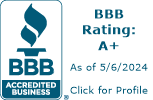A donor-advised fund provides an easy way for a donor to make significant charitable gifts over a long period of time. A donor-advised fund is similar to a private foundation but requires less money, time, legal assistance, and administration to establish and maintain.
What is a donor-advised fund?
Technically, a donor-advised fund is an agreement between a donor and a host organization (the fund) that gives the donor the right to advise the fund on how the donor’s contributions will be invested and how grants to charities (grantees) will be made. Contributions may be tax deductible in the year they are paid to the fund, subject to the usual limitations. Though they can have the donor’s name, donor-advised funds are not operated as separate entities like private foundations, but are merely accounts held by the fund.
How does a donor-advised fund work?
The donor establishes an account, names the account, and recommends an investment strategy. Then, the donor makes required minimum contributions of assets, which may include cash, marketable securities, and other types of assets, depending on the fund.
During life, the donor (or the donor’s designee) can make ongoing, non-binding recommendations to the fund as to how much, when, and to which charities grants from the fund should be made. The donor may suggest that, upon death, grants be made to charities named in his or her will or other legal instrument such as a revocable living trust. Or, the donor may designate a surviving family member(s) to recommend grants.
Endowed funds vs. non-endowed funds
Endowed funds only distribute income, not principal. Because they are permanent, endowed funds provide a lasting memory of the donor’s philanthropic nature.
Non-endowed funds permit a donor to make ongoing recommendations for grants up to the entire fund balance (principal and income).
Income taxes
A donor can generally take an immediate income tax deduction for contributions of money or property to a donor-advised fund if the donor itemizes deductions on his or her federal income tax return. The amount of the deduction depends on several factors, including the amount of the contribution, the type of property donated, and the donor’s adjusted gross income (AGI). Any amount that cannot be deducted in the current year can be carried over and deducted for up to five succeeding years.
Total Wealth Tip:
Consider bunching several years’ worth of annual charitable gifts into one year and completing a Roth conversion at the same time. Due to the 2018 income tax law changes many Americans are no longer itemizing, this type of strategy can take significant advantage of these changes.
The charitable planning strategies involved with this type of planning are complex and requires the guidance of a trusted and experience advisor, such as a fee-only Certified Financial Planner™ (CFP®) and CPA, who plans comprehensively, and with a complete understanding of your particular concerns and goals in life. At Total Wealth Planning we focus on minimizing your tax liability over your lifetime and the next generation’s lifetime.
Author: Rob Lemmons, CFP® is a principal and director of financial planning at Total Wealth Planning, a fee-only fiduciary financial planning firm in Cincinnati (Blue Ash), Ohio. With over 20 years of experience, Rob oversees every client’s financial planning experience from helping to protect their wealth, corporate benefits, retirement income, and overall wealth transfer strategies. As a CPA, CEPA, and CFP®, Rob is frequently invited to speak on financial planning and tax advisory topics and has been quoted in numerous industry publications including Yahoo finance and the Business Courier. Rob can be reached at rlemmons@twpteam.com.







